Get organized, be real with yourself, and reach out to those who are willing to help.
By Lauren Wisniewski ’19
Ah yes, the “choose two” diagram that seems to sum up our young adult lives. With days overflowing with classes, activities, friends, eating, studying, and more, sometimes it feels like we have to sacrifice one of the above to maintain the other two. Well, my friends, those days have come to an end. No more choosing, because you can have all three. (And lucky for you, tips on how to do this are conveniently located below.)
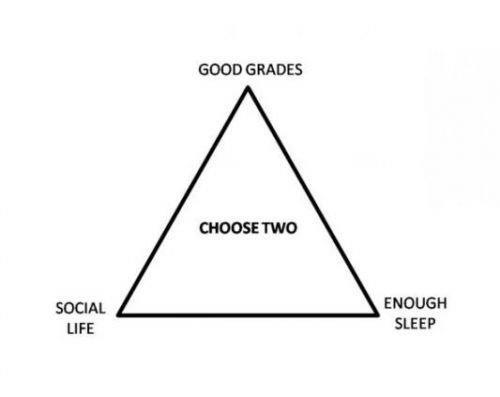
Multitasking
Studying is not code for “lock yourself in your room alone à la Harry Potter in the cupboard under the stairs.” Grab a friend and head out to the Quad for some fresh air and a great study spot. You can get your work done, but also have the company of a friend. Use this strategy in other aspects of your day as well. Want to exercise? Join a fitness class or find a workout buddy and make it social. Instead of compartmentalizing each thing on your agenda into mutually exclusive categories, find ways to combine them.
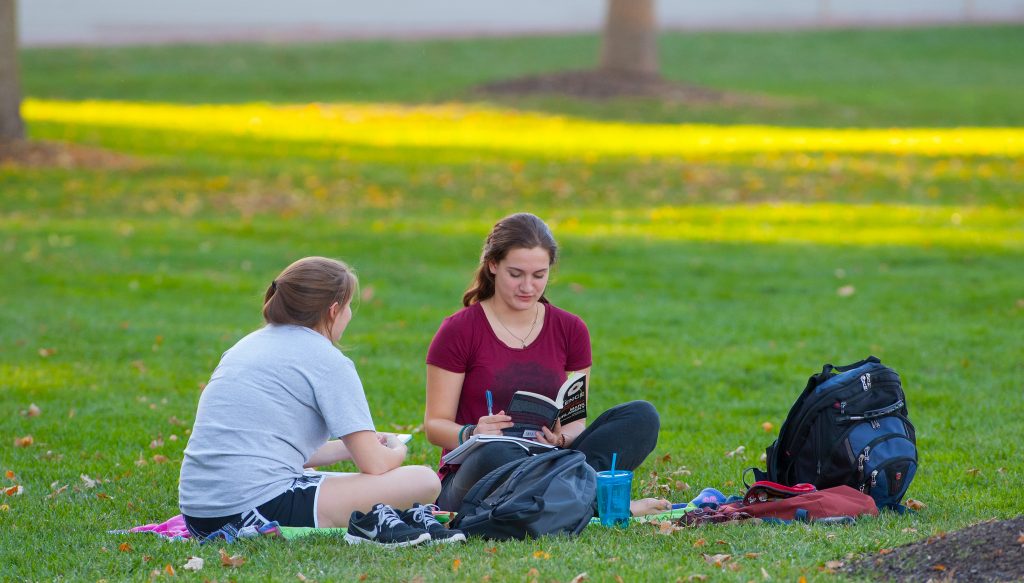
Calendars
GET A CALENDAR! But seriously, please, get a calendar. There are plenty out there: digital, weekly agenda books, Lafayette-style planners at the College Store, etc. Personally, I swear by Google Calendar. It’s like having your own personal assistant. Simply sign up (for free) online and you can enter your classes, practice times, or anything else you want scheduled down to the minute. You can color code events, choose if they repeat and when, and even set reminder notifications that will be sent to your email or phone. The best part is that with the Google Calendar app, you can sync your calendar to your phone. If digital isn’t for you, old-fashioned paper and pencil work just fine. Whatever calendar system you choose will prevent you from double-booking yourself and relying solely on your memory to keep track of your schedule. Your brain has more important things to do, like write papers! So keep it simple, and write it down in a calendar.

Lose the Phone
As a psychology major, I can tell you that this tip is backed by science and probably Bill Nye. Looking at your phone before you go to bed actually interferes with your sleep cycle. The bright light from your screen tricks your pineal gland into thinking it’s daytime, which means it doesn’t secrete melatonin properly (a hormone that regulates sleep and wake). I know it’s hard, but fight the urge to watch those late-night Snapchat stories, put your phone on the other side of the room, and plug back in to Instagram in the morning. I promise it will be worth it when you wake up feeling refreshed instead of groggy.

Know Yourself and Be Realistic
If you’re a night owl, college is not the time to try watching the sunrise every morning with a cup of coffee on the way to your 8 a.m. class. Be realistic about who you are and what you can accomplish. Not everyone can stay at Skillman Library until 1 a.m. finishing research, so if that’s not you, don’t save your work until the end of the day. Crank it out at lunchtime so you won’t need two Red Bulls later on. While some classes are only offered at certain times, try to make your schedule work as best as it can within your typical lifestyle. This will save you from having to explain to your philosophy professor why you’re late after sprinting across the Quad in your pajamas because you slept through your alarm. Learn from my mistakes—plan wisely.
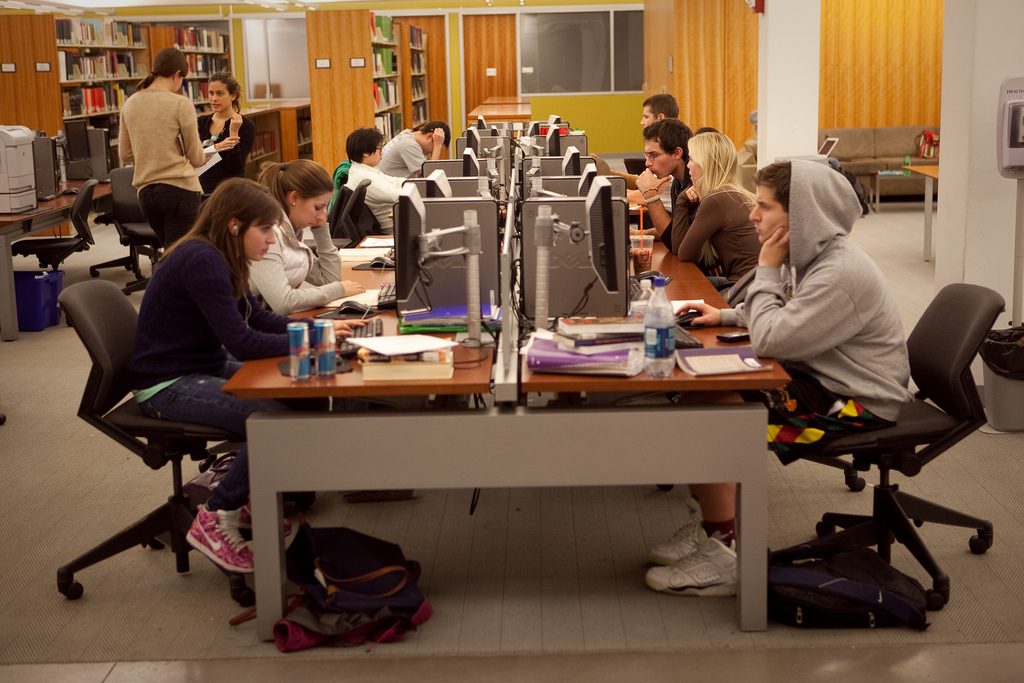
It’s OK to Say “No”
While first-years are encouraged to get involved, remember that it is also OK to say “no” when you need to. This was one of the most important lessons I learned during my first year. Knowing when you can take on another leadership position or meeting versus when it becomes too much may take some trial and error, but never let the fear of disappointing someone trump your mental and physical well-being. Of course, maintain your commitments, but don’t be afraid to speak up if you are juggling too much. It won’t be fair to you, your team, your peers, your coach, or your advisor/mentor if you cannot put 100% of your effort into the activity. Choose the things that you are most passionate about, and dive deep into those.
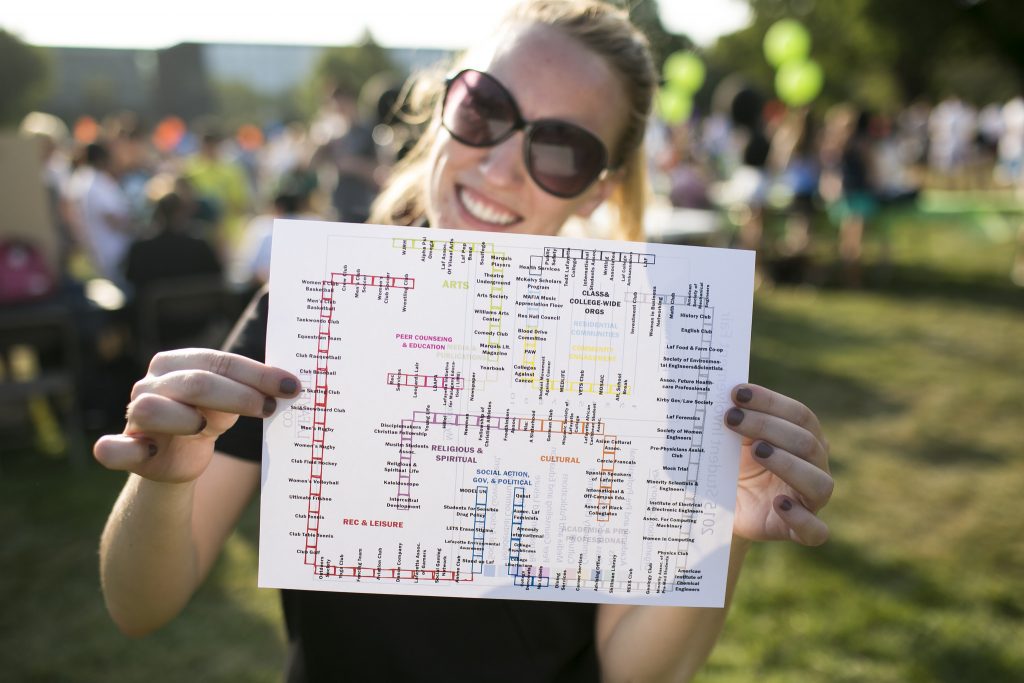
Use Your Resources
Remember that you don’t have to do all this alone. By yourself, maybe you’d only be able to manage academics and social life well by sacrificing adequate sleep, but with the help of others, you can achieve balance in your life. Visit Scott Hall to find tutors who can advise you in specific subjects. Meet up with a writing associate for help with your first paper. Go to Calculus Calvary for extra math help. If you need to de-stress, head to the gym for a yoga class. Bailey Health Center has wonderful counselors who are available to students. Professors are more than willing to meet you at Skillman Café to discuss topics after class. Lafayette has a variety of great resources, so don’t be afraid to ask.
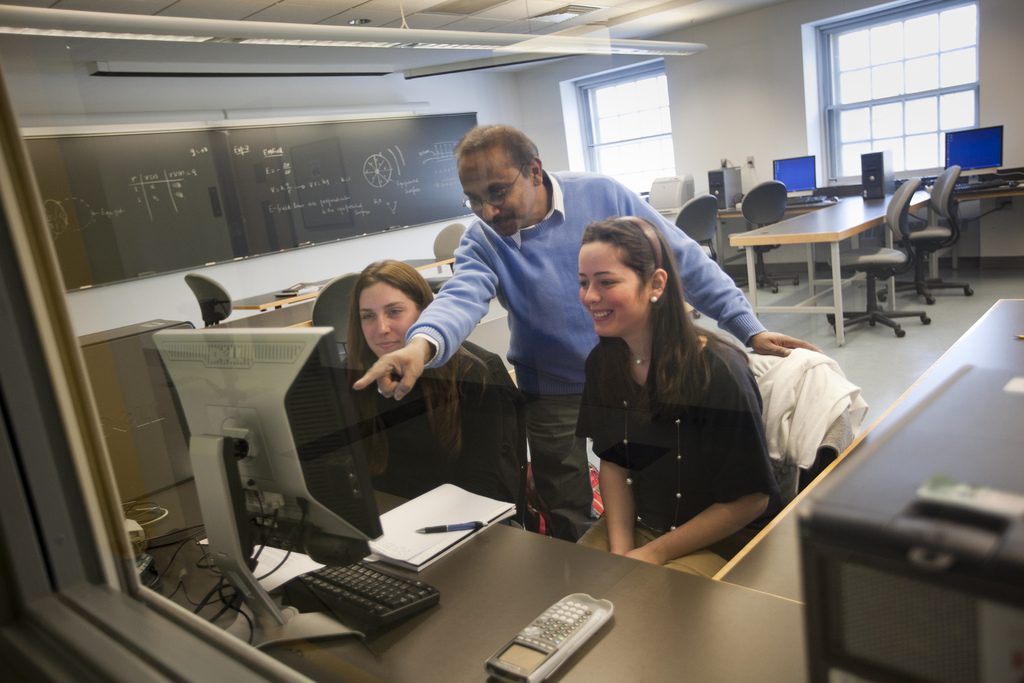
Hopefully these tips will help you achieve balance during your first year. Get organized, be real with yourself, and most importantly, reach out to those who are willing to help you help yourself!






